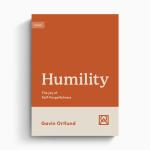This post is part of a series walking through the third volume of Abraham Kuyper’s Common Grace
Carrying on the question from the previous chapter about the state determining the ‘true’ church, there are always some states willing to do so–Russia and the Orthodox Church, for example. [Kuyper of course is writing pre-Communist Revolution] Our government [of the Netherlands] doesn’t have this power–and would have to have it granted by the voters if it were to try to gain it. This would just lead to serious conflict and escalating passions. The “no modifications to Article 36” crowd don’t really want this kind of strife.
Even if this attempt worked politically, would that really be the end of all the (now) dissenting churches? Eventually these newly dissenting churches would have the majority and the “true church” in the eyes of the state would change yet again. Even if we could win this way, are we “ethically permitted” to do so? We [Reformed] don’t allow simple majority rule within the church, why without it? [Insert Baptist objection here–though the not to the broader point.]
Some of course go beyond this, and claim that the Constitution is illegitimate and that the King should reimpose his authority–even earlier writers whom Kuyper admires. Practically, we’d have to dismiss a large part of the government for that to happen. This would include most of the teachers of the nation, leaving a practical crisis for the whole country.
We can’t even say that the Confession will tell us the “true” church in the sense that the state can use it as a guide. The characteristics of the church as explained in Article 29 are not the characteristics of government, and assumes that individuals in the church are believers and in general agreement with the Confession. This obviously does not apply to the government–and certainly not to the voting public.
Historically Article 36 has been the norm, and is still the norm in some places (where Roman Catholicism or Eastern Orthodoxy are ascendant, and a handful of Protestant nations). But the Netherlands and the United States are exceptions. We see the practical results in these nations with “official” churches. Namely, Kuyper thinks there’s a kind of Caesaropapism at work in these places.
This is bad for the nation and bad for the church. It collapses the distinction between God’s things and Caesar’s things. There are no commands in the New Testament establishing this kind of relationship. For that matter, there are no commands in the NT establishing how the state should treat the church at all–those there are some about how the church and believers ought to interact with the state. (297-298)
More on this in the next post.
Dr. Coyle Neal is co-host of the City of Man Podcast an Amazon Associate (which is linked in this blog), and an Associate Professor of Political Science at Southwest Baptist University in Bolivar, MO













